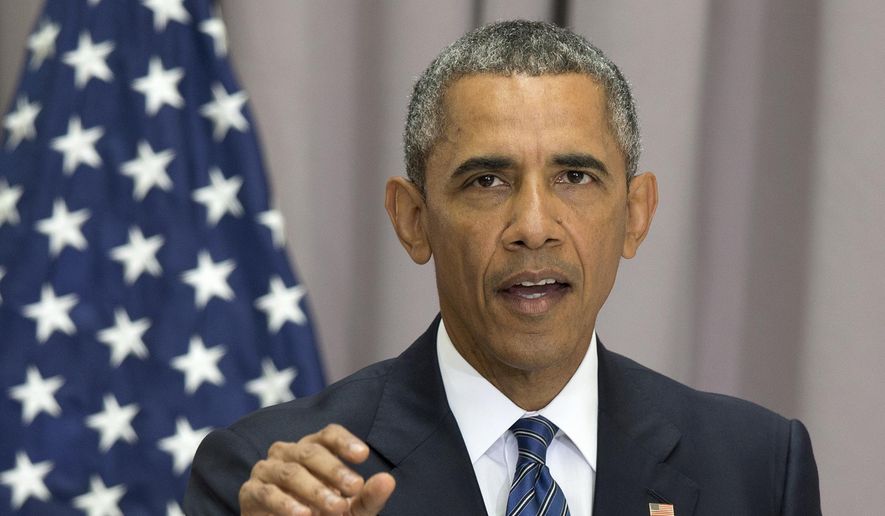Immigration officials didn’t intend to flout a federal judge when they violated his order halting President Obama’s new amnesty, but the agency’s process is so gummed up that it doesn’t even know how many erroneous three-year amnesties it issued, an inspector general said in a new report Thursday.
The report comes just days before U.S. Citizenship and Immigration Services officials are to appear before Judge Andrew S. Hanen and explain the problems, and the report will likely both help and hurt the agency’s case.
Inspector General John Roth clears the agency of intentionally wrongdoing, but portrays a system so dysfunctional that USCIS didn’t even know it was sending out some of the amnesty approvals, and still can’t be sure how many are still floating around.
Judge Hanen has been insistent that any amnesties issued after his Feb. 16 injunction halting the program be revoked, and USCIS has taken dramatic steps to do that, including the outright cancellation of amnesties issued for 22 illegal immigrants. But Mr. Roth’s report suggests the agency doesn’t know the total universe of amnesties it wrongly issued, so it doesn’t know how many others might still be out there.
“USCIS’ data is unreliable, and we cannot validate the number of 3-year [amnesties] either produced or issued after the injunction,” Mr. Roth said.
USCIS said it was still reviewing the report’s findings, but said it was proud to have recaptured almost all of the erroneously issued Employment Authorization Documents, or EADs.
SEE ALSO: Immigration: In post-recession surge, number of Mexicans in U.S. hits record
“USCIS has taken extensive steps to collect the invalid work permits and to issue those affected [by] new work documents, which is the subject of the report,” the agency said. “The remaining 22 individuals who failed to return their invalid 3-year EAD or notify USCIS why they were unable to do so have had their DACA status and work permits terminated.”
Mr. Obama last year announced he was expanding his 2012 amnesty, which granted a two-year stay of deportation and work permits to hundreds of thousands of younger illegal immigrants known as Dreamers. He wanted to include illegal immigrant parents in the amnesty, and expand it to three years for both the parents and Dreamers.
The three-year expansion for Dreamers took effect immediately, while the expanded eligibility was to take effect this year.
Judge Hanen in February halted the expansion. USCIS then informed the judge it had already issued more than 100,000 three-year EADs before the injunction, and then came back three more times to say that, even after the injunction, it still issued more permits — totaling more than 2,600.
Judge Hanen ordered those post-injunction permits to be canceled, and USCIS took extraordinary steps, even going door to door to demand the EADs back from recalcitrant Dreamers.
All but 22 were recovered — a 99 percent success rate. And those 22 have had their amnesties revoked, though it appears the Department of Homeland Security is not going to try to deport them, meaning they’ve only lost their ability to work legally.
Mr. Roth’s investigation found that the permits were issued because of confusion within USCIS and an automated process that still ran for some time even after the judge’s order.
The Dreamer program, known in government speak as Deferred Action for Childhood Arrivals, or DACA, was supposed to be a test run for whether the administration could handle a broader amnesty.
The program has granted legal status to more than 660,000 Dreamers, or young adult illegal immigrants brought to the U.S. as children. But the program has also suffered hiccups, including approval of gang members who, the administration now says, never should have been approved.
One of those has since been charged with four murders in North Carolina.
The agency says it has since clarified its guidance to officers to make clear that those with gang ties shouldn’t be approved, and has scrubbed its lists and kicked out those it has since deemed to have inappropriate gang ties.
• Stephen Dinan can be reached at sdinan@washingtontimes.com.




Please read our comment policy before commenting.